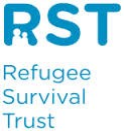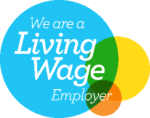Research by the Refugee Survival Trust, reveals the high level of skills going to waste as a result of the UK government ban on their right to work, and the long term impact of this ban on their mental health.
“Asylum seekers who are not allowed to work, have an increased chance of suffering from depression, anxiety and even suicidal thoughts. Long periods of waiting in uncertainty without being able to use their knowledge and expertise to contribute to the UK economy can affect not just their mental health but also their ability to find work in the future. Subjecting this group to such treatment, when they are only exercising their right to seek refuge from violence and persecution in their home countries under the 1951 refugee convention, is not only a waste of their skills but is also unjust”, says Azita Jabbari, the Policy and Research Officer at the Refugee Survival Trust.
The Refugee Survival Trust research, carried out in Glasgow with 50 asylum seekers from 13 different countries, revealed that 1 in 3 of the participants are educated to college or university levels, while a further 40% have high school diplomas. Over 90% of the asylum seekers interviewed have expertise needed in the UK job market, such as marketing and administrative skills. The interviewees also had a range of specialist expertise they were unable to use as a result of the ban on working, including an anaesthetist, an electrical technician, an illustrator, hairdressers and a mosaic art worker.
Speaking to the Refugee Survival Trust about her experiences as an asylum seeker, service user Nsimba described how she thinks the asylum system needs to change:
“The system needs to change. They have to give people freedom and right to work. They put you so long in situations without money or accommodation, for me nearly 12 years now. When I came here, I was 30 now I am 42. Putting people in like situations, you can’t afford anything, you become sick, depressed”.
Asylum seekers in the UK do not have the right to work and while waiting for a decision from the Home Office regarding their claims, only receive £37.75 per week per person in asylum support to cover all of their expenses including food, clothing and transport. This amount is just above half of what someone on jobseekers’ allowance receives.
Cath McGee, Manager of the Destitute Asylum Seeker Service led by the Refugee Survival Trust in partnership with the Scottish Refugee Council, the Red Cross and other organisations, explained the difference lifting the ban would make: “Granting asylum seekers the right to work will not only increase their chances of integration into their host community, but will also benefit the economy in Scotland and enable people to use their expertise to benefit others”.
The research is being launched on the 10th of June 2019, the Day of Action for the Lift the Ban campaign, a coalition of more than 150 organisations across the UK campaigning for people seeking asylum to have the right to work and provide for themselves and their families. The Refugee Survival Trust research with asylum seekers in Glasgow was undertaken as a complementary study to Refugee Action’s similar research in England and Wales. Refugee Action have produced a petition for Lift the Ban, which will be submitted to the Home Secretary by the coalition. We urge all to sign this petition.
Further information:
The Refugee Survival Trust (RST) is a Scottish charity providing practical support to asylum seekers and refugees, especially those who are at risk of destitution. RST also supports refugees and asylum seekers to access employment and educational opportunities; raises public awareness of issues affecting asylum seekers in Scotland and campaigns for a more humane asylum system. See www.rst.org.uk
Destitution Asylum Seeker Service (DASS) is a partnership project helping to support routes out of long term destitution through the provision of casework, legal representation, emergency shelter and temporary accommodation. See https://www.rst.org.uk/dass
- The Refugee Survival Trust’s research findings can be found on their website at https://www.rst.org.uk/archives/2832
- The interview with Nsimba, as an example of mental health issues experienced by asylum seekers, is reflected on: www.rst.org.uk/archives/2708
- More information about the Lift the Ban campaign can be found at: www.refugee-action.org.uk/wp-content/uploads/2018/10/Lift-the-Ban-report.pdf
- The Lift the Ban petition can be signed here: https://act.refugee-action.org.uk/page/32833/petition/1 h


